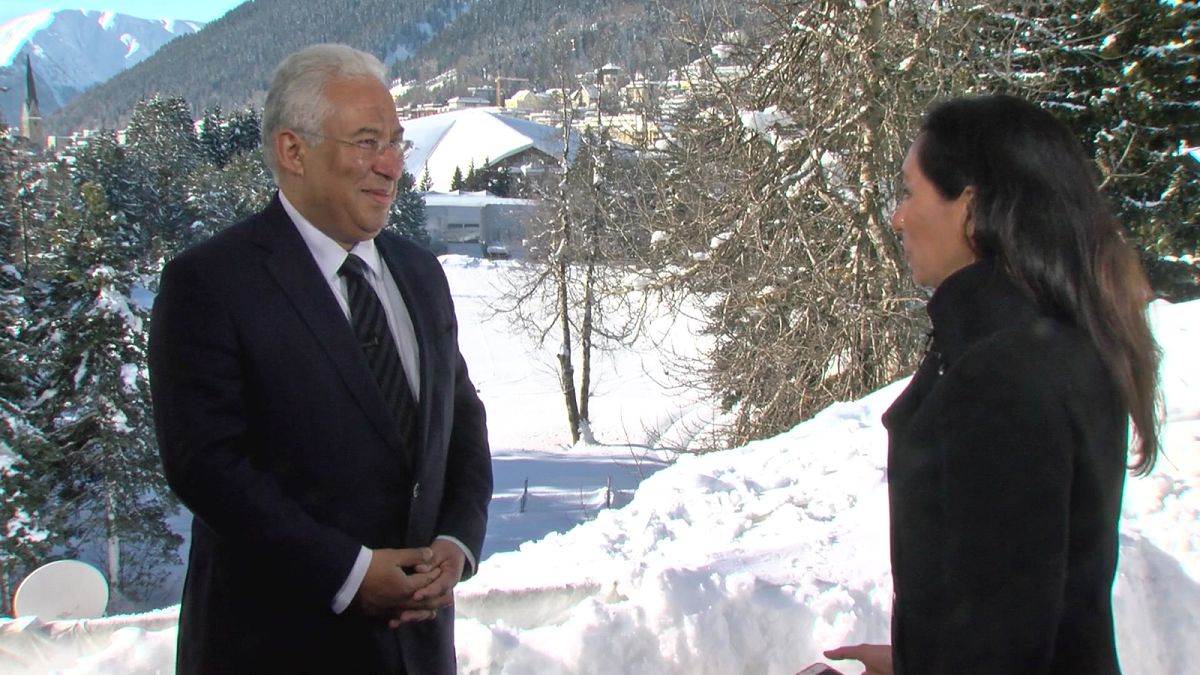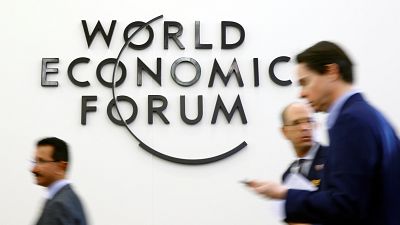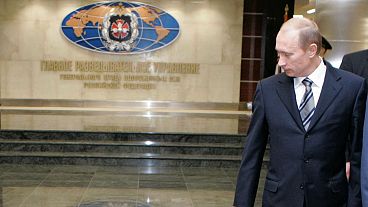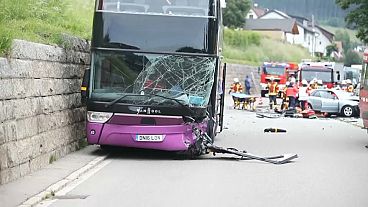Euronews' Isabelle Kumar asks Portuguese Prime Minister Antonio Costa about his vision for the future of the Eurozone and Europe's economic expansion.
The chill winds of crisis may have lifted over Europe with an economic recovery gaining pace but its many unresolved problems still send shivers across the bloc.
The picture for 2018 is scrambled – economic optimism is marred by geopolitical uncertainty from within and outside the bloc.
There’s a tentative moment of respite in Europe amid solid growth predictions, falling unemployment and a competitive euro. The eurozone outperformed expectations last year, and, this year though slowing the European Commission forecasts growth at just above 2%.
2018 could be the moment when Europe finally finishes the job of building a more resilient monetary union. But a word of warning from Secretary General of the Organisation for Economic Co-operation and Development (OECD) Angel Gurria said the bloc should be wary of triumphalism.
He told Euronews: “Complacency is the greatest enemy and right now this is my concern.
“Everybody is talking about the recovery, some people are even talking about a boom. I mean, we are just coming out of 10 years of crisis for heaven’s sake. We are not yet growing at the cruising speed that we had before the crisis, which is 4% and we have left millions and millions and millions behind that we now have to get back on board. So there is a lot of homework.”
And for Philip Jennings, Secretary General UNI Global Union, building a fairer and more inclusive Europe has to remain a top prioirty.
He said: “We need to think about what it is that European workers are earning, there is no question that the wage increases that we’re seeing are not keeping pace with the degree of the economic growth that we are seeing.
“We are saying that workers need a pay rise, if you put money in the workers’ pocket they will spend. That would be a trigger for investment, that would be a trigger for the further economic growth.
“Without the social pillar, without an inclusive pillar to the economic reforms that we are seeing, then we are not going to get the outcome that we would like to see.”
Despite Europe’s better than expected growth figures it’s certainly not out of the woods yet. To get a better picture of what’s going on, Euronews spoke to the Prime Minister of Portugal, Antonio Costa.
Prime Minister, we’re speaking during a time of economic growth in Portugal, with a Portuguese, Mario Centeno at the head of Eurogroup. Is 2018 Portugal’s year?
It’s the result of many years of hard work, which, fortunately, have led to growth and job creation and are thanks to good budget management and debt reduction. Today we will pay the last tranche to the International Monetary Fund, which has an big tax rate, so we will return to normal relations with the IMF, like we already have with European Union, because we have already left the excessive deficit procedure. So we are concentrating on the revival and development of the future of Portugal.
So, on the future of Portugal: many Portuguese are seeing this positive situation and saying they would like to see some austerity measures reversed. Particularly, they’d like to see increases in salaries and pensions. Is this something that you plan for this year?
We’ve already achieved that, we’ve already increased the salaries and pensions which were cut, we’ve already reduced the “reallocation” of salaries, we’ve already begun handing out benefits, so we’re already in another phase. And we did all that at the same time as reducing our deficit in a sustainable way. We reduced it by 1.2 percent last year, and just under 1 percent this year. We’ve started to reduce our public debt and we’ve turned page on austerity. Now we are on the path to growth.
Perante os desafios que a #Europa enfrenta, a questão chave é aprofundarmos a União Económica e Monetária. Só assim teremos uma base suficientemente sólida para construir a Europa do Futuro. Esta foi uma das ideias que defendi hoje em #Davos, no Fórum Económico Mundial. #WEF18pic.twitter.com/D8×1PC9cSs
— António Costa (@antoniocostapm) 25 January 2018
So, for the Portuguese, when will they really start to see these differences in their daily lives?
They’re already feeling them. Of course, not everyone, but look, minimum wage has increased by 15 percent in three years. Salaries, which were negotiated by the trade unions, last year increased by 2.6 percent with inflation at 1.4 percent. So, people have already recovered. And a very important indicator is that confidence and the economic climate has reached an historic level.
So, we see a Europe which is undergoing big changes. What are your priorities for the future of Europe?
The priority is to give concrete answers to the questions of citizens. Security and employment are the main concerns and for that we have to reform Europe to create new solutions to questions of security and defence. We must invest in climate change research and digital research. These things must be done on a solid foundation and that is why the key question is on the reform of the Eurozone because, only with a strong Eurozone, can we have the strong foundations on which to build the Europe of the future.
And is there a risk of having a Europe that’s too powerful? Is that something that concerns you?
No. I believe that that’s something we’re missing: there isn’t enough Europe. But in order to have more, we have to have solid foundations. And we will have those foundations only if we achieve what must be done in the Eurozone: conclude the banking union and the union of capital and especially create a eurozone that can benefit all 19 countries, not just the developed ones. And this approach is a key issue in the coming months.
And also key issues when it comes to divisions in Europe. What will be the biggest risks for you when it comes to these divisions?
The European Union is built on values – freedom, democracy, the rule of law. Europe was founded in peace and we should never forget that the economy is only an instrument designed to serve these values. So, we need to return to these values, and on these values we must build the Europe of the future. A Europe for the people, which reassures those who are concerned about the future of their jobs in the face of automation, and the fears of people facing the threat of terrorism and the worries that are surrounding Europe.
And that is why we have to reinforce our collective defence capacity, to work collectively to combat the terrorist threat, to work together to remain the most dynamic and innovative economy in this ever-changing world.



